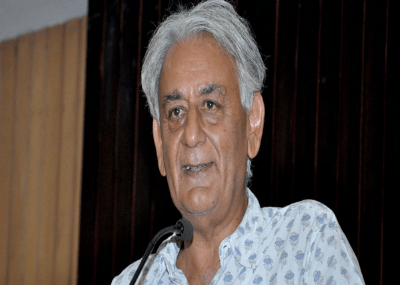By SN Team
Andhra Pradesh has a chance to show it cares and is different. With dynamic chief minister Chandrababu Naidu, it seems possible. Since the focus and the buzz is about smart cities, noted environmentalist and physicist Prof. Vikram Soni has appealed for building a sustainable natural city at Amravati capital. He said if the government protects the natural course of flood bank and flood plains; it could save Rs 600 crore on water supply to capital city per year.
Prof. Soni is reported to be in favour of natural instead of a smart city. The big question is – why can’t it be both?
The environmentalist who conducted research on water conservation inspected Amaravati seed capital and river bank near capital along with social activist B Satyanarayana and capital region protection committee leader A Gandhi. He said that the government should not take up construction within 2.5 km from the flood bank to protect the floodplains, which helps water percolation and continuous supply of water even in times of drought.
He said that the government should develop parks and greenery within 2.5 km radius from the flood bank to develop a natural city and to bring down the temperature in capital city by 10 degrees.
The experts said severe drought conditions prevail throughout the country and there is a possibility for water emergency. With lack of drinking water, the State government should protect the environment and river course at Amaravati capital for continuous sustainability. He said Krishna floodplains from millions of years of flooding each year have deposited sand aquifers which are 3 km wide and 40 metres deep and 40 per cent of their volume is water. The river has enough surplus flow in the monsoon which amounts to 4 billion cubic metres. The environmentalist said if the government protects the flood plains it could save 40 million cubic metres of water which is enough to supply 150 litres of water per head to 8 lakh people per year which costs around Rs. 600 cr.
He said once a self-sustaining water supply is developed by protecting the floodplains, it would help development of AP as it need not spend on water supply like other Indian cities, where the governments are forced to supply drinking water.
Smart water, energy and transport infrastructure is possible if a city is being built new. After seeing the Chennai experience, no city would want to mess with the flood water plains. Hope AP learns from others’ mistakes.










